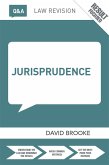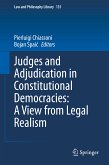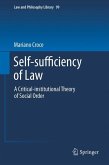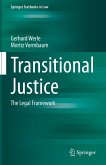This book explores concrete situations in which judges are faced with a legislature and an executive that consciously and systematically discard the ideals of the rule of law. It revolves around three basic questions: What happens when states become oppressive and the judiciary contributes to the oppression? How can we, from a legal point of view, evaluate the actions of judges who contribute to oppression? And, thirdly, how can we understand their participation from a moral point of view and support their inclination to resist?
Dieser Download kann aus rechtlichen Gründen nur mit Rechnungsadresse in A, B, BG, CY, CZ, D, DK, EW, E, FIN, F, GR, HR, H, IRL, I, LT, L, LR, M, NL, PL, P, R, S, SLO, SK ausgeliefert werden.









